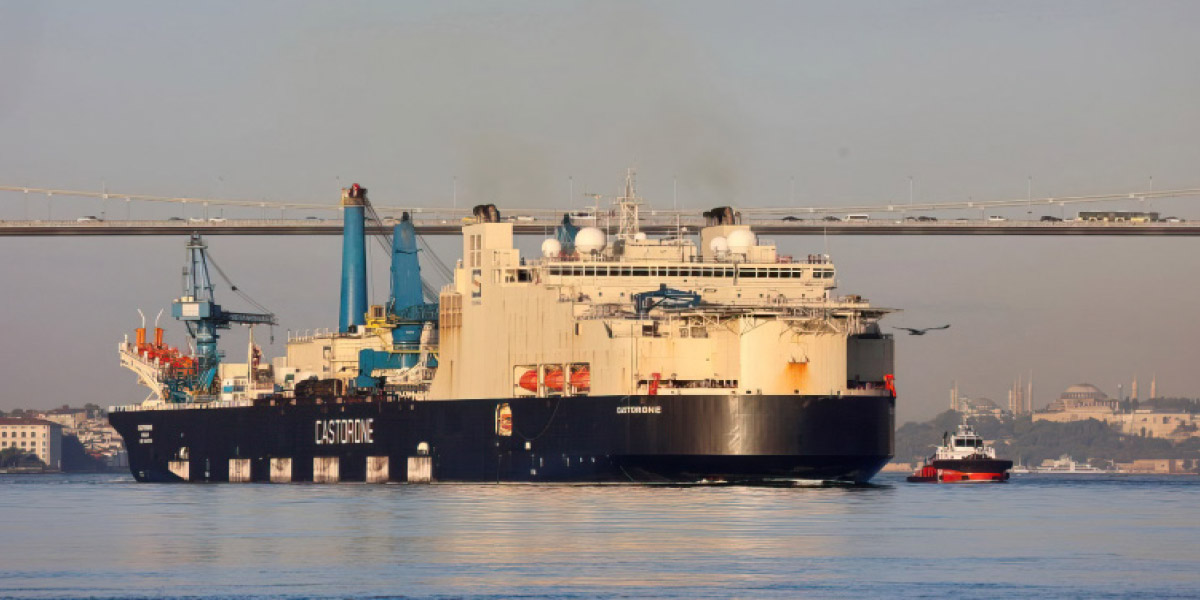A New Black Sea Natural Gas Project Could be a Game Changer for the Region—and a Challenge for Putin - Energy Academic Group

NPS Hosts Annual Black Sea Security Symposium
By Arnie Dupuy, PhD, Faculty Associate-Research, Energy Academic Group
Last month, energy companies Petrom and Romgaz announced plans to develop Romania’s Neptun Deep offshore gas field. The development of the field is a good sign for the wider Black Sea’s energy security—and has the potential to impact the region geopolitically and economically, notably by providing an alternative to Russian gas, thereby weakening Moscow’s influence.
Much of the Black Sea has been off limits for oil and gas production mostly because of geopolitical tensions, the sea’s exceptional depths, and environmental and worker safety concerns. Prior to 2014, sizeable natural gas fields existed in Ukraine’s Black Sea exclusive economic zone (EEZ); however, when Russia annexed Crimea, it appropriated Ukraine’s gas deposits, effectively removing these assets and potential revenues for the foreseeable future.
In recent years, Turkey and Romania have emerged as players in the region’s gas projects. For example, in August 2020, the state-owned Turkish Petroleum Corporation discovered the Sakarya gas field, the largest in the western Black Sea. Estimates indicate that Sakarya holds 540 billion cubic meters (bcm) of gas reserves, and it will meet roughly 30 percent of Turkey’s natural gas demand. The first deliveries of gas are anticipated in 2023.
Romania has also discovered significant offshore gas reserves in its EEZ and plans to exploit about 200 bcm. Romania started doing so in 2023, producing 1 bcm from the Ana platform, a field developed by Black Sea Oil & Gas. However, the largest field in the Romanian sector is Neptun Deep, estimated at 100 bcm, in water depths between 100–1,700 meters.
OMV Petrom (a Romanian oil and gas company owned by Austria’s OMV) and Romgaz (a Romanian state-owned gas company) will lead the development of the project. Infrastructure development will start in 2024, and first production is expected in early 2027. According to George Scutaru, director of the New Strategy Center (a Romanian think tank) and former national security advisor to the Romanian president, Neptun Deep will produce between 7 bcm and 8 bcm per year, with potential revenues of over twenty-five billion dollars—the equivalent of three and a half years of Bucharest’s current defense expenditures.
READ THE FULL ARTICLE
This article is a reprint from the Atlantic Council website. To read the full article, go to https://www.atlanticcouncil.org/blogs/turkeysource/a-new-black-sea-natural-gas-project-could-be-a-game-changer-for-the-region-and-a-challenge-for-putin/
LEARN MORE
Email Dr. Arnie Dupuy at arnold.dupuy@nps.edu for more information about this article.
Quarterly Newsletter
Surge is published quarterly by the Energy Academic Group and covers a divese range of energy-related topics. View archive

